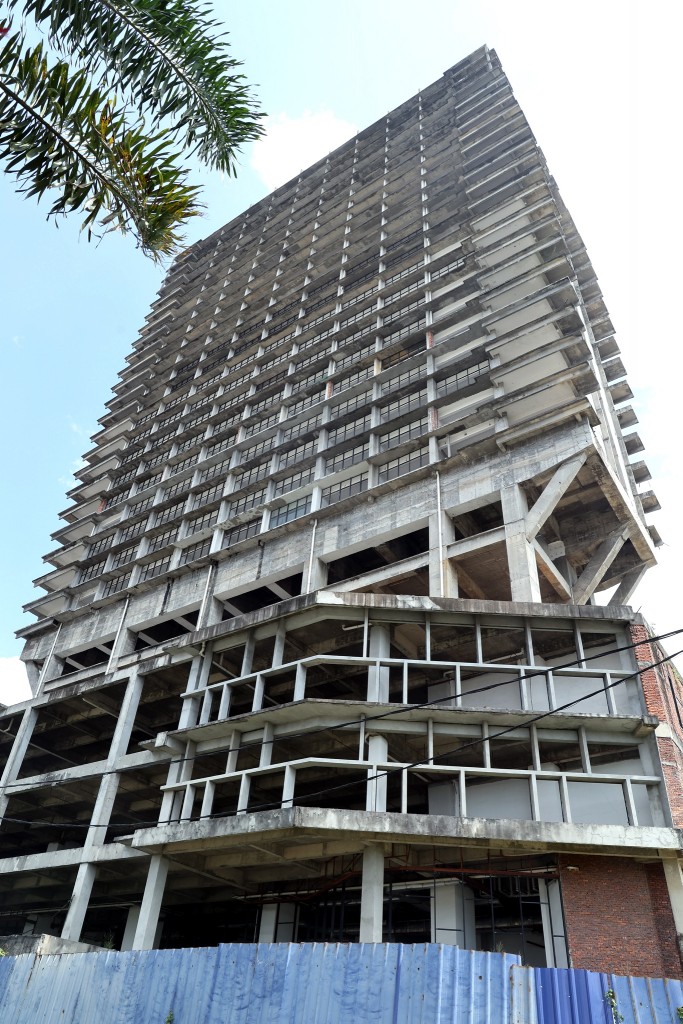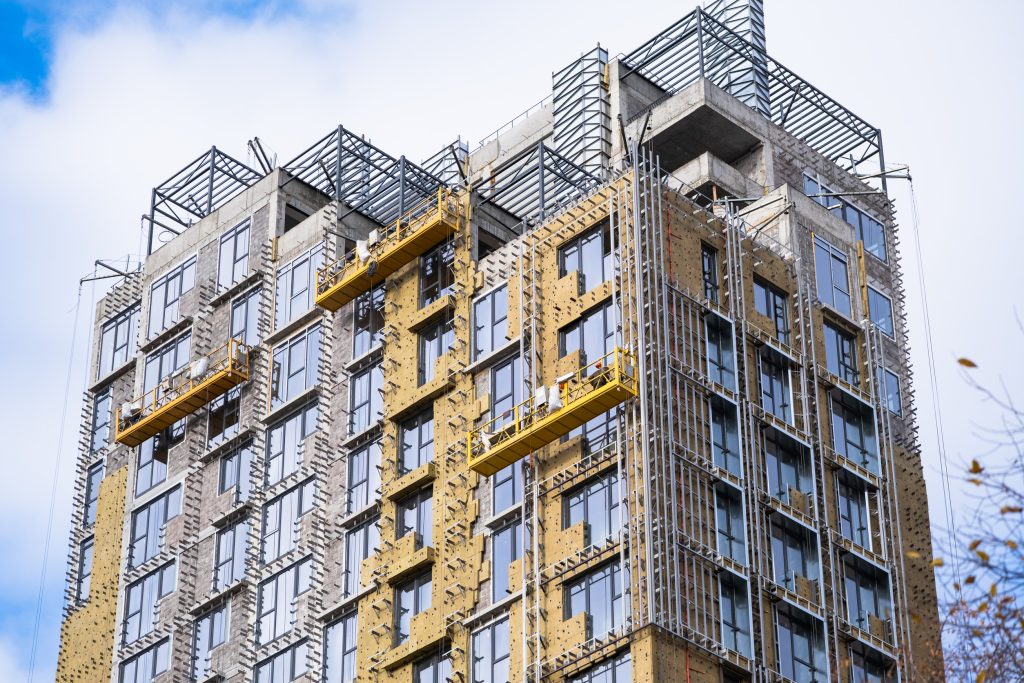Multiple stakeholders yet to be held responsible for causing project abandonment
By: Yip Wai Fong
Abandoned housing developments, an ongoing issue that has plunged thousands of homebuyers into financial distress and uncertainty, raise serious questions about whether existing laws, particularly the Housing Development (Control and Licensing) Act 1966 (HDA), provide adequate protection. According to Rehda Institute (RI)’s latest research, while the HDA has several amendments that give it more teeth, its effectiveness remains significantly hindered by weak enforcement.
The institute's Abandoned Housing – Challenges Insights and Solutions report revealed that there were as many as 42,749 abandoned housing units across 288 projects in the country from 2019 to the third quarter of 2024. It also indicated that to date, no licensed developers responsible for project abandonment have faced action under HDA Section 18A, which carries the punishment of a fine of between RM250,000 and RM500,000 or imprisonment for up to three years, or both.
“Our stand is that there are sufficient penalties for developers involved in project abandonment. Where we come from is that the enforcement is lacking. The authorities might find certain difficulties because, within the Act itself, there are certain requirements if they were to take action and that in itself is not so clear. A lot of documentation is required which may not be easily compiled for action to be taken. Certain processes in the law need to be simplified and clarified for easier enforcement,” said research and education director Malathi Thevendran.
The report has pointed to challenges such as a fragmented record-keeping system and limited resources within enforcement agencies in enforcing Section 18A. Moreover, the complex nature of housing development projects and the involvement of multiple stakeholders impede the gathering of evidence and further weaken enforcement capabilities.
“While prosecutions have been undertaken against developers involved in unlicensed and problematic projects, these efforts have yielded limited outcomes. The Division of Rehabilitation of Abandoned Projects (BPPT) of the National Housing Department (JPN) data showed that, from 2010 to the present, JPN has submitted 157 investigation papers to the Legal Division (BUU) of KPKT. However, many of these cases did not progress to prosecution due to several critical factors - late complaints from purchasers, which were often lodged only after projects had been abandoned for five to 10 years. By this time, developer companies were frequently wound up or dissolved, making it impossible to prosecute them in court. Lack of recorded statements from developers, a critical requirement for completing investigation papers, resulted in many cases being categorised as No Further Action,” the report said.
Unlicensed developments
According to the report, as many as 12,378 abandoned units from the total were by unlicensed developers. These developers had exploited the definition of housing development under the law, which exempts smaller developments of four units and fewer from licensing requirements. There is a lack of communication and coordination between the KPKT and local authorities concerning approved housing projects, resulting in unlicensed developments falling under the radar of enforcement agencies.
To address the gap, RI has called for a one-stop centre to serve as a centralised monitoring system for KPKT and local authorities, to track approvals in real-time and to identify early warning signs of financial distress and delays.
“It (one-stop centralised monitoring) is important primarily to enable a close collaboration between Federal and the states. In the case of unlicensed development, those might be approved at the state level without the Federal’s knowledge because the developer (by building four or fewer units) is not required to obtain a license at the federal level,” Malathi said.
“We are calling for a platform where every stakeholder is part and parcel of the process and has access to all the information. Actually, if the Housing Integrated Management System (HIMS) is fully implemented and everyone gets on to it, the objective would be achieved,” she added.
In the case of abandoned units by unlicensed developers, the report also raised the question about the role of lawyers in preparing the Sale and Purchase Agreement (SPA) and advising the purchasers and called for a legal framework to hold lawyers accountable.
“Given their legal expertise and involvement in drafting the SPA, lawyers are expected to alert purchasers to any potential risks, including the consequences of dealing with an unlicensed developer. However, there is no specific provision in Act 118 that holds lawyers liable for failing to advise on such matters, leaving purchasers who often have limited legal knowledge vulnerable. The lack of clear accountability for lawyers in this context places an unnecessary burden on purchasers,” the report said.
Other stakeholders’ culpabilities
The report also pointed to Sections 22E and 22F, which address unethical or fraudulent conduct by stakeholders and professionals such as architects and engineers involved in housing projects.
“However, no notable publicised cases have been taken against any professionals as a deterrent, particularly in cases involving the issuance of progress certifications for construction works not completed according to SPA or the release of funds to developers outside the agreed progress schedule,” the report said.
“Despite the regulatory mechanism in Sections 13A, 22E and 22F, its practical enforcement appears limited. An informal inquiry with a person associated with the Board of Engineers Malaysia revealed no reports had been received from the Housing Controller regarding unprofessional conduct by engineers. There has been no confirmation that any architect has been penalised by their professional body for misconduct. This is despite claims that some architects prematurely certify the completion stages of projects, enabling monies to be withdrawn earlier than scheduled,” the report added, referring to housing unit sale and purchase monies withdrawn from the Housing Development Account. Mandated under Section 7A, licensed developers are obligated to deposit the monies from homebuyers into the account and withdrawals are strictly regulated to prevent misuse.
The report also brings to attention the role of banks in managing these accounts and supporting lawful practices, proposing a shared accountability model between stakeholders.
“While banks are not legally obliged to ensure the proper use of monies in s, their central role in managing these accounts gives them significant influence over the financial stability of housing projects.
“Given their significant role, banks arguably bear a moral responsibility to act in good faith, ensuring that their financial transactions support lawful and fair practices. To address the current gaps, a shared accountability model should be introduced. Under this model, banks collaborate with developers, architects and the authorities to ensure compliance with the regulations. Such a framework would not only enhance transparency but also foster greater confidence among stakeholders, ensuring a more effective and accountable housing development ecosystem,” it said.
Market-driven housing policies
There were 30,371 abandoned units by licensed developers, with 76.9% priced between less than RM100,000 and RM300,000. The research has called for the removal of price-controlled housing quotas as these projects are often financially risky due to rising development costs, and especially that the primary reason for project abandonment was financial issues related to cash flow problems, the report found.
“We’ve said also in previous reports about allowing free market forces because when you impose a price quota, when costs supersede price, you know that the feasibility and cash flow gets affected. And we have identified in the report that financial and cash flow issues are the primary reason behind abandoned projects,” Malathi said.
“The main objective of our research is more towards making sure that moving forward, no projects get abandoned. We found that most financiers deem price-controlled developments as higher risk and so it is difficult for the developments to get financing,” she added.
Developer tiers and housing completion guarantee system
To address the issue of developers abandoning projects due to financial issues, RI has recommended a tiered developer classification as part of the licensing application process. Developers would be assessed based on financial capacity and non-financial indicators such as experience and past project performance, and new and inexperienced developers would be subject to a more rigorous compliance checklist before approval of their developer’s license and advertisement and sale permit (APDL).
It also suggested for a Housing Completion Guarantee System, modelled after the Korea Housing and Urban Guarantee Corporation to protect homebuyers from financial losses and ensure projects are completed even in case of developer insolvency.
“Instead of continually allocating funds to address the consequence of project abandonment, strategically investing a portion of the budget to establish an efficient and sustainable housing completion guarantee system to protect homebuyers’ interests and eradicate the issue should be implemented. Ultimately, this guarantee system will save taxpayer money and create a sustainable housing industry moving forward,” the report suggested.
(Sidebar)
Safeguarding homebuyers from housing abandonment

Faiz advised homebuyers not to fall for nice brochures and show units and always check the developer’s track record.
Developing awareness and being savvy in conducting due diligence may save one from falling into a housing project that ends up being abandoned. Financial Faiz director Faiz Azmi, who is a popular podcaster and YouTuber in financial literacy, shared several dos and don’ts to find out which housing developments are viable. The good news is that much of the important information can be found online, he said.
“The simple one is not to fall for flashy brochures or show units. First, make sure the developers are licensed under the KPKT. You can check this at the TEDUH portal (of KPKT). Check also their track record; if you found online or through media coverage that they have abandoned any project or have court cases, do not buy from this developer,” he said.
“But you also have to understand that these developers might use a special purpose vehicle (SPV) for each project or even each phase to dodge legal liability. Go to forums like Lowyat.net (property section) – there are always discussions and debates about developer performances. You can also use CTOS or Experian for a paid credit report to assess their financial track record,” he continued.
Faiz said that the panel of banks is another indicator of whether the developer is financially sound and trustworthy.
“Big banks, I’m referring to the household names, usually have stronger oversights. If these banks are among the financial institutions providing bridging loans to the developers, that’s a plus point. However, if there is only one bank providing a bridging loan to the project, that’s a sign of concern. If none, forget about it,” he said, adding that homebuyers can ask the developer and the sales agent directly for this piece of information, as usually the bridging loan providers are also the end-financiers.
“If the developer avoids answering who their financiers are, that’s a red flag,” he pointed out.
In the unfortunate case that a homebuyer purchased a project that ended up being abandoned, Faiz stressed the importance of acting collectively with other affected homebuyers.
“First, do not stay silent. Reach out to others who are also affected, form a group and report it to KPKT for them to take action. You could be protected under the Housing Claim Tribunal. Talk to your bank to pause the loan payment. Engage a lawyer as a group of affected buyers to explore legal options, don’t act alone,” he said.
Faiz also voiced concern that the often slow process of legal enforcement ends up granting errant developers more leeway while leaving homebuyers in a quandary.
“The developers are a savvy lot – by using third-party companies, JVs, SPVs and shell companies, it makes it difficult to hold them accountable. Since enforcement is slow, errant developers can afford to abandon the project and start another one. On the other hand, homebuyers, especially of lower-priced housing are quite vulnerable and don’t have easy access to lawyers. They would have usually started planning their life around the expectation that in two or three years’ time, they would be moving in to the location where their new house would be – possibly taking steps to enroll their children to a school nearby or choose a workplace that’s nearer to the house. But, when their project gets abandoned, and without a quick legal redress to their situation, the homebuyers’ lives were thrown into a limbo,” he opined.
Stay ahead of the crowd and enjoy fresh insights on real estate, property development and lifestyle trends when you subscribe to our newsletter and follow us on social media.


















































